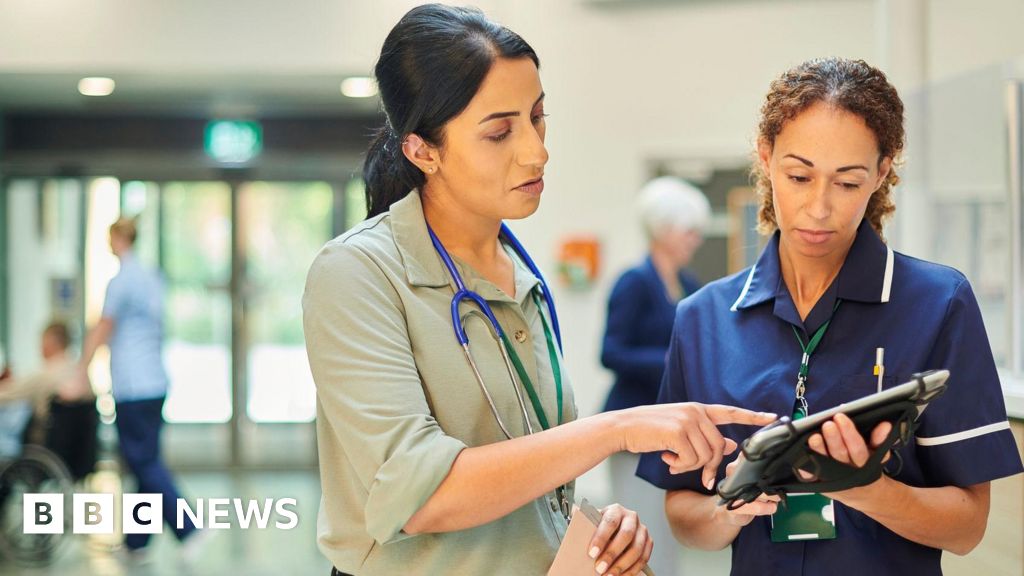Single patient records will be at the heart of the government’s new strategy for the NHS in England, ministers say.
Currently, records are held locally by a patient’s GP and any hospitals they visit.
Work is already under way to join up the records and ministers say they will form part of its drive to improve efficiency in the NHS under its 10-year plan.
Campaigners have raised concerns about data protection but ministers say they are “absolutely committed” to protecting confidential medical information.
It comes as the government launches a new “national conversation” to inform the 10-year plan, which is due to be published in the spring.
One of the key themes of the plan will be moving from “analogue to digital” – and the single patient records will be a core part of that.
The government said it would speed up patient care, reduce repeat tests and medical errors.
Last year, a contract was awarded to the firm Palantir to create a database joining up individual records kept by local services.
It will allow patients and those treating them to access the information about their health.
Campaign group MedConfidential has warned having a single record like this will be “open to abuse”.
But Care Minister Stephen Kinnock defended the move, saying the government was “absolutely committed” to protecting patient data.
He said safeguards providing a “cast iron guarantee” on security would be set out in a new bill that will be put before Parliament to push ahead with the move.
Alongside this, the NHS App will be further developed to allow patients to routinely use it to book appointments and check test results.
The hope is patients will begin to use it in the same way banking apps have revolutionised the way people bank.
The 10-year plan will also focus on moving care out of hospitals and into the community.
The government said local neighbourhood health centres, where patients can access GP, district nursing, physios and testing all under one roof, will form part of this.
But it said it wanted to hear from the public about their own ideas for change as part of the national conversation.
The pubic engagement exercise begins on Monday, with the launch of website change.nhs.uk.
Health Secretary Wes Streeting said: “The NHS is going through the worst crisis in its history but, while the NHS is broken, it’s not beaten. Together we can fix.
“Whether you use the NHS or work in it, you see first hand what’s great but also what isn’t working. We need your ideas to help turn the NHS around.”
Patients Association chief executive Rachel Power said she “warmly welcomes” the initiative.
She said: “For far too long, many patients have felt their voices weren’t fully heard in shaping the health service.
“This national conversation marks a significant step towards genuine patient partnership and puts patients at the heat of the NHS’s evolution.”
RCN general secretary Prof Nicola Ranger said it was vital NHS staff got involved too.
But she said any future plans would need “new investment”.
Next week the government is expected to set out extra funding for this winter and next year when Chancellor Rachel Reeves unveils her Budget.


